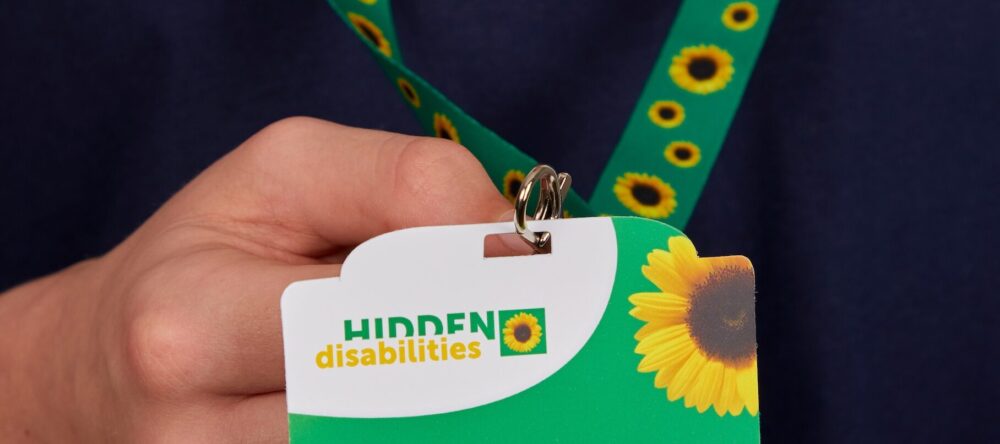Greater Anglia supports Sunflower scheme to help people with non-visible disabilities
June 15, 2022

Greater Anglia is continuing to support the Hidden Disabilities Sunflower Lanyard scheme so that passengers with non-visible disabilities can get the help they need when travelling. Stocks of the Sunflower lanyards and ID cards are available to passengers who need them at main staffed stations.
The lanyard and ID card feature a sunflower on a green background to signal to others that the holder may have a disability that is not immediately obvious, such as learning difficulties, mental health as well as mobility, speech, visual or hearing impairments.
Paul White from Hidden Disabilities Sunflower said: “Living with a hidden disability can make daily life more demanding for many people, but it can be difficult for others to recognise, acknowledge or understand the challenges that they face.
“The Hidden Disabilities Sunflower helps by discreetly indicating to people including staff and colleagues that those who choose to wear it, have a hidden disability and may need additional support, help or a little more time.”
Greater Anglia’s Accessibility Manager, Rebecca Richardson, said: “We’re delighted to continue our support of this initiative to help our staff recognise that customers may have different access needs when they travel with us which may not be immediately obvious. Our new trains offer a significant improvement in terms of accessibility and we are striving to improve accessibility in all other parts of the customer journey including web access and information provision.”
The sunflower was chosen as the symbol for the scheme as it suggests happiness, positivity, strength as well as growth and confidence. It is a universally recognised flower as well as being gender-neutral. It intends to allow everyone with hidden disabilities to choose to be visible when they want to be.
Since its launch in 2016, it has now been adopted globally by major airports and venues and in the UK, by many supermarkets, railway and coach stations, leisure facilities, the NHS, a number of police, fire and ambulance services, and an increasing number of small and large businesses and organisations.